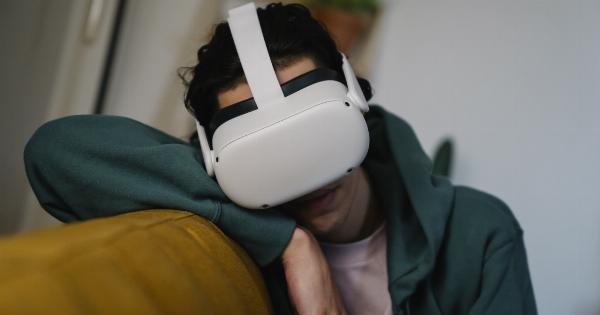Many people enjoy solving puzzles as a way to relax or pass the time. However, recent research suggests that puzzles may also have cognitive benefits.
Studies have shown that regularly engaging in puzzle-solving activities can improve memory and attention. This article explores the findings from various studies and highlights the positive impact of puzzles on cognitive functions.
The Impact of Puzzles on Memory
Memory is a crucial cognitive function that allows us to encode, store, and retrieve information. Several studies have examined the relationship between puzzle-solving and memory improvement.
One study published in the Journal of the International Neuropsychological Society found that engaging in puzzles regularly, such as crosswords or jigsaw puzzles, can improve both short-term and long-term memory. The researchers suggest that puzzle-solving exercises the brain’s memory networks, leading to enhanced memory retention and recall abilities.
Another study conducted at the University of Exeter found that individuals who frequently engage in puzzles have a better episodic memory, which refers to the ability to remember specific events or experiences.
The researchers hypothesize that the mental effort required to solve puzzles stimulates memory processes in the brain, ultimately improving memory performance.
Puzzles and Attention Span
Attention is the ability to focus and sustain mental effort on a particular task or stimulus. In today’s fast-paced world, maintaining attention can be challenging.
However, research suggests that puzzles can help improve attention span and concentration.
A study published in the journal Brain and Cognition investigated the effects of puzzle-solving on attention. The results showed that individuals who regularly engaged in puzzles had significantly better attention span compared to those who did not.
The researchers suggest that puzzles require sustained mental effort and cognitive flexibility, which can strengthen attentional control mechanisms in the brain.
Additionally, a study conducted at the University of California, Berkeley found that solving puzzles, particularly ones that involve complex patterns or structures, can enhance visuospatial attention.
Visuospatial attention is the ability to attend to and process visual information, such as recognizing shapes, patterns, or spatial relationships. The researchers propose that actively engaging in puzzles trains the brain to become more efficient in processing visual stimuli, leading to improved visuospatial attention.
Benefits for Cognitive Aging
As individuals age, cognitive decline becomes a concern. However, engaging in mentally stimulating activities, such as puzzles, has been shown to have protective effects on cognitive aging.
A study published in the Archives of Neurology examined the association between puzzle-solving and the risk of developing Alzheimer’s disease.
The results indicated that individuals who regularly participated in puzzles had a significantly lower risk of developing Alzheimer’s compared to those who did not engage in such activities. The researchers suggest that puzzles may help maintain cognitive reserve, which is the brain’s ability to compensate for age-related changes and damage.
Furthermore, a longitudinal study conducted at the University of Michigan found that cognitive activities, including puzzle-solving, can slow cognitive decline and improve cognitive function in older adults.
The researchers noted that regular engagement in mentally stimulating activities is associated with better overall cognitive performance and a reduced risk of cognitive impairment.
Types of Puzzles with Cognitive Benefits
Various types of puzzles have been found to have cognitive benefits. Here are a few examples:.
1. Crossword Puzzles
Crossword puzzles are word-based puzzles that require filling in intersecting boxes with the correct letters to form words. They can enhance vocabulary, verbal reasoning, and memory.
2. Sudoku
Sudoku puzzles involve filling a grid with numbers from 1 to 9, ensuring that each row, column, and region contains unique numbers. These puzzles can improve logical thinking, problem-solving, and concentration.
3. Jigsaw Puzzles
Jigsaw puzzles involve assembling pieces to create a complete picture. They can enhance visual perception, spatial reasoning, and attention to detail.
4. Brain Teasers
Brain teasers are puzzles or riddles that require creative thinking, logical reasoning, and problem-solving skills. They can enhance cognitive flexibility and critical thinking.
5. Crossnumber Puzzles
Similar to crossword puzzles, crossnumber puzzles use numbers instead of words. They can help improve numerical reasoning and computational skills.
Conclusion
Engaging in puzzles regularly can have significant benefits for memory, attention, and cognitive aging.
The findings from various studies suggest that puzzles exercise different cognitive processes, leading to improvements in memory retention, attention span, and visuospatial abilities. Incorporating puzzles into your daily routine can be an enjoyable way to keep your mind sharp and potentially reduce the risk of cognitive decline.































